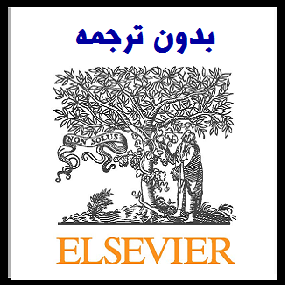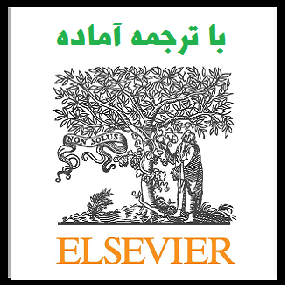دانلود رایگان مقاله آمادگی آژانس های مسافرتی کوچک برای بازاریابی دیجیتال – سال 2020


مشخصات مقاله:
عنوان فارسی مقاله:
آیا آژانس های مسافرتی کوچک برای بازاریابی دیجیتال آماده هستند؟ نظرات مدیر آژانس مسافرتی
عنوان انگلیسی مقاله:
Are small travel agencies ready for digital marketing? Views of travel agency manager
کلمات کلیدی مقاله:
بازاریابی دیجیتال، آژانس های مسافرتی کوچک، مطالعه کیفی، انگیزه ها، چالش ها
مناسب برای رشته های دانشگاهی زیر:
مدیریت، گردشگری و توریسم
مناسب برای گرایش های دانشگاهی زیر:
بازاریابی، مدیریت گردشگری
وضعیت مقاله انگلیسی و ترجمه:
مقاله انگلیسی را میتوانید به صورت رایگان با فرمت PDF با کلیک بر روی دکمه آبی، دانلود نمایید. برای ثبت سفارش ترجمه نیز روی دکلمه قرمز رنگ کلیک نمایید. سفارش ترجمه نیازمند زمان بوده و ترجمه این مقاله آماده نمیباشد و پس از اتمام ترجمه، فایل ورد تایپ شده قابل دانلود خواهد بود.
فهرست مطالب:
Abstract
Keywords
1. Introduction
2. Literature review and research objectives
2.1. Digital technology an overview
2.2. Small travel agencies
2.3. Adoption models
3. Methodology
4. Findings
4.1. Popular digital marketing tools and platforms used by travel agencies
4.1.1. Website
4.1.2. E-mail
4.1.3. SMS and blogs
4.1.4. Social media platforms
4.2. Motivation to adopt digital marketing
4.2.1. Ease
4.2.2. Engage
4.2.3. Earn
4.3. Digital marketing: challenges faced by travel agencies
4.3.1. Risk
4.3.2. Fierce competition
4.3.3. Excessive information
4.3.4. Lack of personal touch
4.3.5. Technical issues
4.4. Effectiveness of digital marketing
4.4.1. Vendor management
4.4.2. Branding
4.4.3. Sales/revenue generation
4.4.4. Customer management
5. Conclusion and discussion
6. Implications
7. Limitations and future scope
Author contribution
Appendix A. Supplementary data
References
قسمتی از مقاله انگلیسی:
1. Introduction
Digital technology has been transforming tourism globally. It is generating a new paradigm-shift in the marketing strategy (Happ & Ivancso-Horvath, 2018), transforming the tourism industry structure and developing a whole range of opportunities and threats (Gratzer, Werthner, & Winiwarter, 2004). Literature posits that digitalisation is associated with the growth of businesses and is important for their performance in the market (Taiminen & Karjaluoto, 2015). Tourism industry is highly receptive to the benefits of digital technologies due to their fragmented and information-oriented nature (Andreu, Aldas, � Bign�e & Mattila, 2010; Buhalis & Deimezi, 2004). Travel service providers use digital tools such as websites, mobile applications, and social media for attracting new consumers (Mariani, Buhalis, Longhi, & Vitouladiti, 2014), improving customer service, enhancing operational efficiency and consequently increasing revenue (Amaro & Duarte, 2015; Law, Buhalis, & Cobanoglu, 2014), but these capabilities are still underutilized (Martins, Salazar, & Inversini, 2015). Hence, despite the possible benefits of digital channels, there are also barriers for adoption, such as management’s attitude and the firm’s financial situation (Law et al., 2014; Mehrtens, Cragg, & Mills, 2001), perceived risks and technological issues etc. These barriers are more prominent among small and medium-sized enterprises (Abou-Shouk, Lim, & Megicks, 2013). The small travel agencies constitute a big chunk of the total service providers (Karanasios & Burgess, 2008). These small retail agencies or travel intermediaries with physical presence employing less than or equal 20 members (Barnett & Standing, 2001), once flourished but are presently in doldrums (Buhalis & Licata, 2002) as the online wholesale travel agencies are taking away their market share (Barnett & Standing, 2001; Buhalis & Licata, 2002). In these volatile times (Reichstein & Harting, 2018), with the fall of giants such as Thomas Cook, rise of wholesale travel agencies such as Goibibo etc., and easy access to internet, it becomes imperative to study the perceptions of small travel agents on the adoption of digital marketing (Leung, Law, Van Hoof, & Buhalis, 2013; Rambe, 2017). The study aims to explore the current use of digital tools by small travel agencies and their perceived motivations and challenges.


